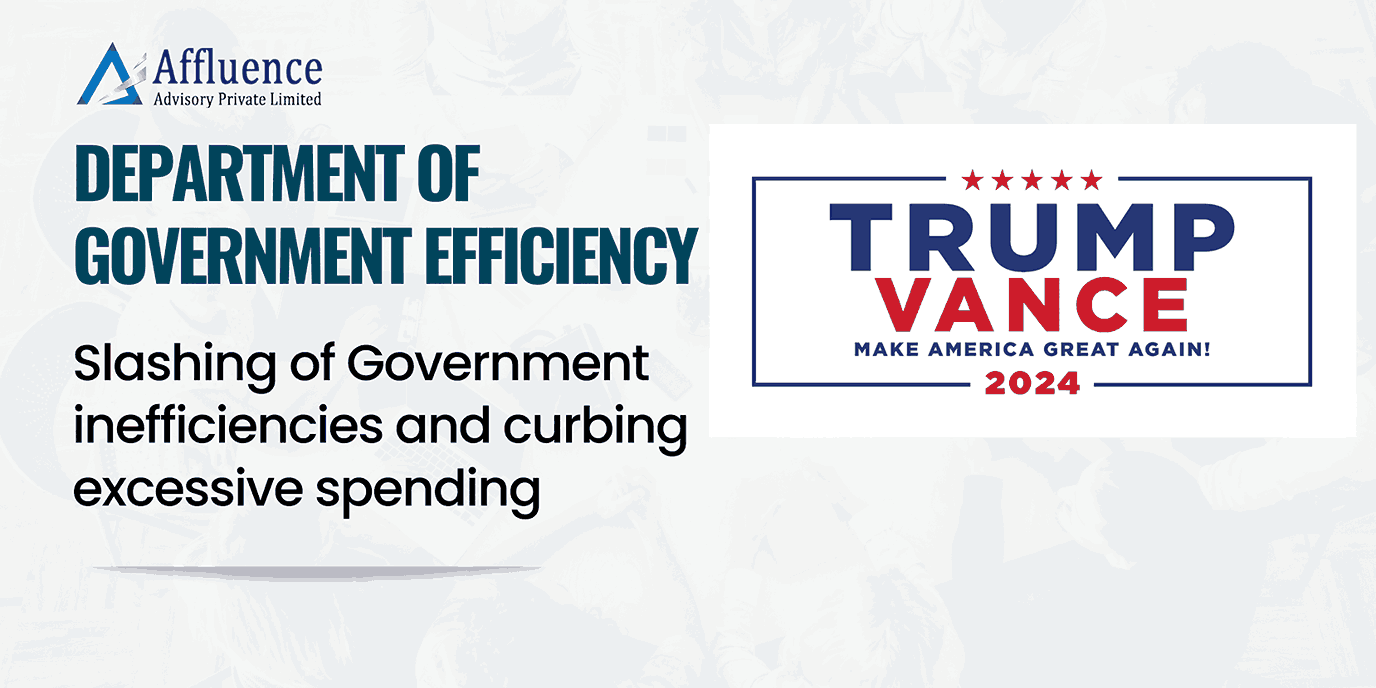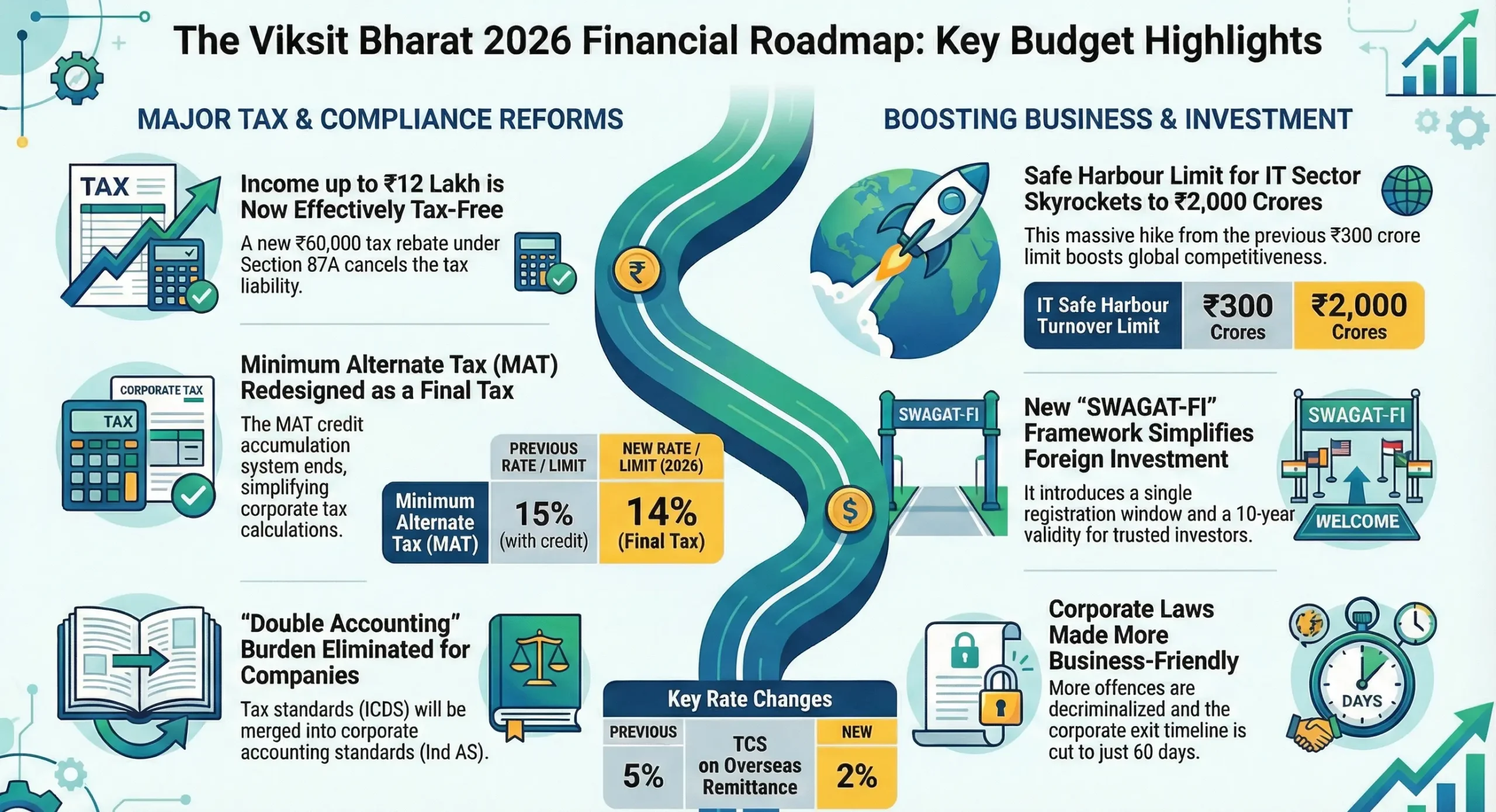Author: Ankit Baid, Research Analyst at Affluence Advisory
With a goal of slashing government inefficiencies and curbing excessive spending, Donald Trump has announced the formation of the Department of Government Efficiency (DOGE), to be led by Elon Musk and Vivek Ramaswamy. Together, they aim to revamp the federal bureaucracy, cutting wasteful expenditures and restructuring federal agencies to align with the “Save America” initiative.
Elon Musk estimates that up to $2 trillion could be saved annually over the next three years, accounting for nearly 40% of the federal budget. This ambitious project is anticipated to act as a “Manhattan Project” of government reform, signalling sweeping changes in operations and oversight. Trump has indicated similar goals over two years, though without committing to specific figures. According to Musk, a streamlined government structure will be achieved by eliminating excessive red tape, with impacted employees offered two years of severance.

While these moves could benefit the economy in the long term, the short-term impact is expected to be disruptive. Reductions in federal spending, which contribute significantly to the U.S. economy (nominal GDP of $29 trillion) and indirectly impact the global market, could create ripple effects internationally. Developed nations like Japan and South Korea may see investment inflows as dollars return to the U.S., strengthening their economies. Meanwhile, global investors are likely to pull back from emerging markets, seeking stability in U.S. Treasury Bills. This shift will weaken the INR, raise the cost of imports like oil, and strain exports, especially as global demand wanes in response to economic slowdowns and tight monetary policies, strengthen the yield and dollar. A strong dollar would lead to devaluation story playing soon in the theatres very soon.
Further complicating the situation, Trump’s proposed tariff hikes could heighten challenges for export-reliant Asian economies, potentially prompting India to allow the INR to depreciate to remain competitive. With Europe weakened by ongoing conflicts, alternative export markets are limited, impacting India’s current account deficit and adding downward pressure on the INR. This environment of currency depreciation, inflation, and economic stagnation could lead to rising interest rates and restrained corporate earnings, prompting foreign portfolio investors (FPIs) to pull back and IPOs to face intensified competition for capital in secondary markets.
Interest rate cycle is in play for couple of years more, liquidity could start draining out of the financial system. High rates will also pose a challenge for sectors dependent on low financing costs, like renewable energy, as seen in the falling stock valuations across that industry. With cuts in major tech stocks yet to begin, a further acceleration in market declines seems likely.
Meanwhile, it’s widely believed that China has anticipated these shifts, as seen in recent market adjustments. A devaluation of the yuan seems inevitable, likely followed by similar moves among ASEAN currencies. Prolonged trade wars could sustain elevated interest rates, as the U.S. attempts to keep inflation below its interest rates and GDP growth above inflation. The era of high P/E ratios and easy liquidity may be drawing to a close, as global economic dynamics evolve under these new policies.
Disclaimer: This article provides general information existing at the time of preparation and we take no responsibility to update it with the subsequent changes in the law. The article is intended as a news update and Affluence Advisory neither assumes nor accepts any responsibility for any loss arising to any person acting or refraining from acting as a result of any material contained in this article. It is recommended that professional advice be taken based on specific facts and circumstances. This article does not substitute the need to refer to the original pronouncement
CLICK HERE DOWNLOAD PDF










